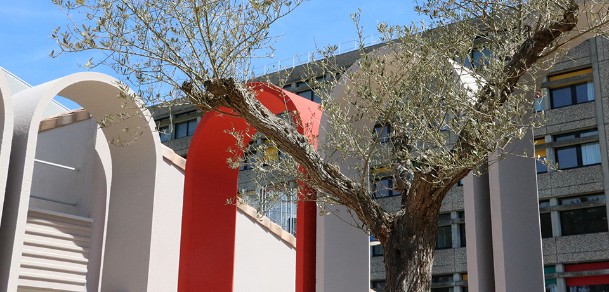Research - Bordeaux Montaigne University v1.2
Scientific Policy

Research at the University is implemented in the context of sixteen teams of which five are associated with the CNRS (National Scientific Research Centre) with a UMR (Mixed Research Unit) status.
Several large fields
As developed on each team’s page, the thematics are vast; they cover several large fields. Within this diversity, without the pretense of being exhaustive, we can describe the general panorama. The humanities, in the most classic sense, are interested in geography and philosophy, but also in history, ancient or more recent, archaeology and archeometry, literary analysis and comparative literature, as well as the environment. More than twenty languages are taught and are the object of studies conducted through the perspectives of linguistics, didactics, literature, or of the civilizations which practice them. Several artistic domains are explored in terms of art history or esthetic analysis, often in regards to technical interpretation. The vast field of information-communication is studied via the medias which transmit speech and images through traditional materials or through those which have emerged after the digitalization of data.
Doctoral students
Among the actors in research, doctoral students, with the support of their research director, represent an injection of precious ‘new blood’. In conjunction with the Doctoral School, our institution has the constant task of supplying excellent working conditions to young student-researchers, who will assure the relay or go on to other courses of action. In the context of the teams, with the aid of the directors of these structures, the policy of our institution also has the objective that the work of doctoral students concludes, within a delay of about four years, with the defense of their thesis and the obtaining of a doctorate of the highest quality.
Financing
The participation of multiple external sources of research financing (ANR, Region of Aquitaine contracts, Idex, Labex, etc.) is complemented by an internal financial allotment. One part of this allotment is divided between the teams – principally based on their size – while another part is directed through a policy of subsidizing project realization. The projects can be aligned with the institution’s lines of research or take the form of projects labeled ‘projets blancs’ which are outside the scope of these lines. In this latter category are found several types of operations: one-time events, preparation of more ambitious programs or symposiums – which, it is essential to note, remain a fundamental research ‘tool’ in the Humanities – or in the publication of collective works.
The decision to support a project and the amount of the subsidy are, after examination by the Research Commission, voted by the Scientific Counsel.
Organization
The Direction of Research is composed of fifteen technical and administrative staff members; its missions concerning the implementation of the research policy principally involve management of the Doctoral School, engineering the creation and realization of projects and the financial management of contracts as well as of teams which do not possesses managerial personnel.
The scientific policy is established by the Vice President of the Scientific Counsel and his team: Institutional Scientific Policy (PSE), major international programs, diffusion of research, doctoral studies, etc.
- 100 research programs, 200 academic events per year
- 10 research groups, 5 mixed research units, 1 mixed service research unit
- 1 cluster of excellence for research in Archeological sciences
- The Bordeaux University Press
- 600 PhD students
- 34% foreign PhD students
- 100 thesis defenses per year
- 72 "cotutelles" (joint supervision schemes) with 30 countries throughout Europe and the world
- 400 hours of scientific and professional training
- 1 online journal, ESSAIS